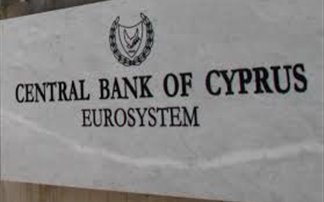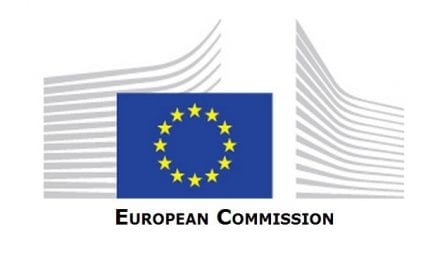“It is dark, and hell is hot” …
While the sun is shining, it is hot as hell. The temperature on Friday is expected to hit 108 degrees; the record high for June in Athens is 100. Add this to the garbage strike that is into its second week. This is not a nice presentation for the commencement of the tourist season. For the average Greek, this is hell.
Each time that I write a new piece I go back to old ones to see if I missed something; unfortunately, it does not appear that I have.
It is getting harder for me to find new topics to write about. As I have come to learn, the more things change in Greece, the more they remain the same. But, when your civilization is 3200 years old, change evolves at a slower pace. Perhaps I should start creating fake news. I could write as often as I liked, and it might be more fun. Instead I will wallow in the facts.
2017 will be known in Greece as the year of the second bailout review. Given that I count four bailouts since I arrived here three years ago, I am not sure how this is the second review. In fact, I do not even remember the first review.
In any case, Greece passed a set of reforms in May designed to raise taxes and cut pension benefits (pensions in Greece is another word for social security). The government then immediately announced that it may or may not implement these reforms. This is not the most ideal way to negotiate with the EU when your entire future depends on some type of debt restructuring, but this is Greece.
The EU did not take to kindly to the rhetoric from Athens and postponed the bailout review until mid-June. In the end, the EU gave Greece €8.5 billion, but no debt relief. Greece will return €7.0 billion to the EU in July to pay interest and principal, with the remaining €1.5 billion paid to the EU during the balance of 2017. By the end of 2017, negotiations will begin for the next bailout.
Despite no debt relief, the Greek 10-year bond has experienced a huge rally. One year ago, the yield on the 10-year was 7.74%. Today the yield on the 10-year is 5.37%. Moody’s Investor Service announced last Friday that it has raised its rating on Greek debt and changed its outlook to positive from neutral. Investors are betting on a debt reduction, or more likely that Greek debt will be part of Europe’s quantitative easing, which could make it easier for Greece to access the capital markets for funds some time in 2018, instead of relying solely on the EU.
Likewise, the Greek stock market has been on a rise. The Greek ETF (exchange traded fund) is up over 28% since January 1, 2017. Contrast that to the U.S. market, which has risen 9.8% over the same period. Keep in mind that the Greek ETF is heavily weighted to the four systemic banks (Alpha, Eurobank, National Bank of Greece and Piraeus, who together make up 32% of the ETF), who on average have risen 25%.
Speaking of the banks, the four systemic banks currently report that there are €103 billion of non-performing loans. The banks have reserved €56 billion against these loans and have another €58 billion in collateral. The banks, therefore, have adequate reserves against unwinding the non-performing loans. Alpha Bank announced on June 20, 2017, that it was no longer using any Greek government guarantees and had repaid all of its obligations back to the government.
Separately, tourism remains a very important part of the Greek economy and there will be between 30 and 35 million tourists this year, up as much as 50% from two years ago. Athens is busier than I have ever seen and the real holiday season does not begin until July 1st. Forget trying to get into a decent hotel, prices are up and rooms are scarce. As a result, the bed and breakfast business is booming. Nine months ago, there were less than 2500 B&B listings in Athens; today, that number today is over 5000.
Finally, the latest employment figures show that the official unemployment rate has dropped to 22.5%. This is down from 28% in late 2013.
Now for the cold shower.
According to usdebtclock.org, Greece’s national debt stands at $340 billion. A good benchmark for debt would suggest that a country’s debt should not exceed its GDP, which in Greece’s case is €194 billion in GDP (according to countryeconomy.com). The EU claims that Greece will be able to end 2017 with a surplus of over 1%. This misses the entire point. There is no way the Greek economy will ever grow fast enough to service its debt. Quantitative easing may be exciting in the short-term, but unless Greece gets debt relief it leaves the Euro, period.
The banks are operating with the same mentality as the EU. Both the EU and the banks know that their customers can never repay their loans. So, rather than try and solve the problem, the banks and the EU simply lend more and more money to insolvent companies and Greece, who return the funds in interest payments and increase their exposure to the banks and the EU. Both the banks and the EU are praying for a miracle that is never coming.
The real issue for the banks is that the hole that exists in their balance sheets cannot be plugged by selling loans. The banks, like Greece, need a permanent bailout.
The total loans for the four systemic banks are €229 billion. The banks report that 45% of the loans are non-performing. There is no scenario where this number is accurate. If you speak to the co-op banks in Greece, 80% of their loans are non-performing. The co-op banks will logically have a greater exposure to small businesses and real estate than the systemic banks, so 80% is too high of a number to use for the systemic banks. Cyprus officially reports a similar NPL number … 45%. However, if you visit in private with the banks in Cyprus, they will tell you their NPL number is 65%. Cyprus is further along in the restructuring process, so it reasonable to assume the Greek number is higher. So, for arguments sake, let us say the number of NPLs is 70%.
70% of €229 billion is €160 billion, which happens to be the NPL amount we have been using for some time. As I stated in my last piece, according to bankingnews.gr, €50 billion of the banks’ exposure is worthless. These are loans without collateral. This means that the banks have €6 billion in reserves against the remaining €179 billion in loans (€229-€50, and €56-€50). Or put another way, Greece has €110 billion of remaining NPLs and €6 billion of reserves against that number. Of course, the banks still hold collateral on these loans, but what is this collateral worth? Based upon anecdotal information on specific loans, we would guess that the real value of the collateral is about one-third of face value. So, the underlying collateral could be worth €19 billion, not €58 billion. If these numbers are correct, then the amount the banks need is not zero as they suggest, but €85 billion of new capital (€110-€6-€19). Even if the banks could miraculously turn their €25 billion of tax loss carryforwards into real capital (which they cannot) and get credit for excess equity, the required capital is still €40 billion. The current market capitalization for the four banks is €10.5 billion. One would conclude that the current shareholders would be diluted out of existence.
So, the EU will not grant Greece any debt relief and the Greek banks will not grant the lenders any debt relief. It is hard to see how this ends well, and yet the market seems to imply otherwise. But keep in mind that the total € volume traded on the Greek stock market averaged €100 million per day in May. To put that into perspective, Dick’s Sporting Goods, on average, trades $100 million per day on the New York Stock Exchange.
While tourism is up, the average spend per tourist is expected to be down from 2016. Tourists are coming, but they are spending their money at all-inclusive resorts. It is difficult to measure how much of this money will trickle into the broader Greek economy. The fact that supermarket sales were down 5% for the first five months of 2017, one out of six cars in Greece is uninsured and 30% of stores in central Athens are closed suggests there is no trickle down.
For the average Greek, Greece remains in a death spiral. While official unemployment is down, unofficial rates are obviously higher and specific age groups and regions are hit much harder than the numbers indicate. One of the reasons for the “improvement” in unemployment is the continuing emigration trend to other European countries; Greece’s population is down 250,000 in the past five years.
There is an influx of speculators in real estate and hospitality, however, it appears the Turks account for a large portion of this influx as they look to relocate out of Turkey. Regardless of this speculation, it is hard to see how you can make money when the population is not working, or if you are working, you are not being paid, and if you are being paid your effective tax rate is 65%.
I hope I am wrong, but this seems like (as the Financial Times coined the phrase) “a dead cat bounce.”
*David C. Wittig is an American, living in Athens, Greece. David was previously co-head of Investment Banking at Kidder, Peabody; co-head of Mergers and Acquisitions at Salomon Brothers and Chairman, CEO and President of Western Resources. David founded WW Investments, which owns 20% of Euroconsultants S.A.



















